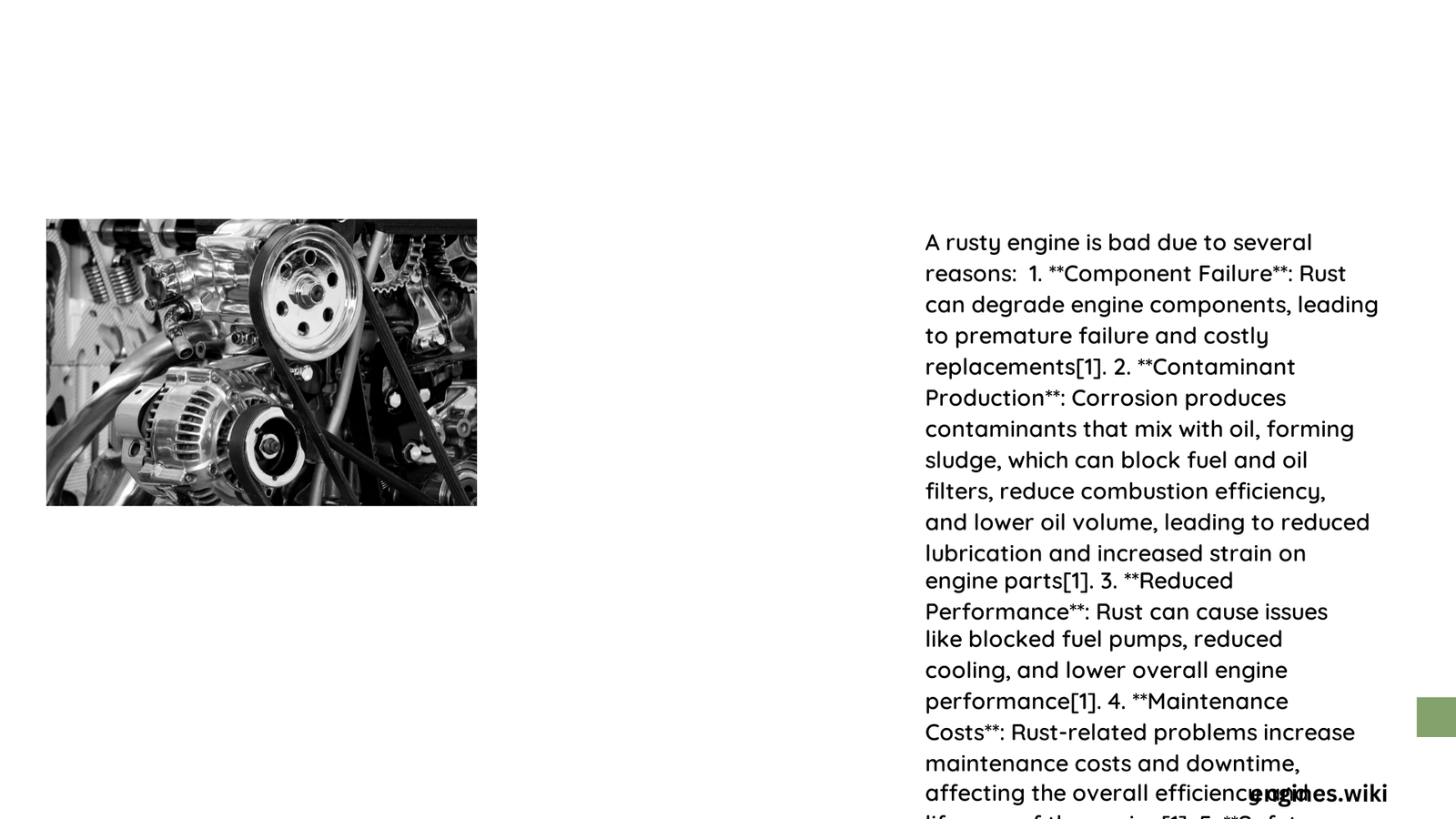A rusty engine represents a serious threat to vehicle performance and longevity. Rust can systematically deteriorate critical engine components, causing reduced fuel efficiency, decreased horsepower, increased emissions, and potential complete engine failure. Vehicle owners must understand the comprehensive risks associated with engine rust to prevent costly repairs and maintain optimal vehicle health.
What Happens When an Engine Develops Rust?
Rust is an electrochemical process that occurs when metal components interact with oxygen and moisture, causing gradual degradation of engine parts. This corrosion can impact multiple critical systems within a vehicle’s engine.
How Does Rust Impact Vehicle Performance?
Fuel System Degradation
- Fuel Line Blockages: Rust particles can clog fuel lines
- Pump Efficiency Reduction: Contaminated fuel systems strain fuel pumps
- Injector Performance: Rust compromises precise fuel delivery mechanisms
| Rust Impact Area | Performance Consequence | Potential Repair Cost |
|---|---|---|
| Fuel Lines | Reduced Fuel Flow | $200 – $500 |
| Fuel Pump | Inconsistent Fuel Pressure | $500 – $1,200 |
| Fuel Injectors | Uneven Engine Operation | $300 – $800 |
What Are the Primary Symptoms of Engine Rust?
Recognizing early rust symptoms can prevent extensive damage:
- Unusual Engine Noises
- Knocking sounds
- Grinding mechanical interactions
-
Unexpected performance fluctuations
-
Visible Corrosion Indicators
- Reddish-brown discoloration on metal components
- Flaking or pitting on engine parts
- Crusty deposits around connection points
How Expensive Can Rust Damage Become?
Rust-related repairs can quickly escalate from minor maintenance to major engine reconstruction. Average repair costs range:
- Minor Rust Damage: $500 – $2,000
- Moderate Rust Damage: $2,000 – $4,500
- Extensive Rust Damage: $4,500 – $8,000
Can Rust Be Prevented?
Proactive maintenance strategies can significantly reduce rust development:
- Regular engine cleaning
- Using rust-inhibiting treatments
- Storing vehicles in dry, climate-controlled environments
- Applying protective coatings
- Addressing moisture accumulation promptly
What Are Long-Term Consequences of Untreated Rust?
Neglecting engine rust can lead to:
– Complete engine failure
– Reduced vehicle resale value
– Compromised safety systems
– Increased environmental emissions
– Potential roadside breakdowns
Expert Recommendations

Professional mechanics universally agree that early rust detection and intervention are crucial. Annual comprehensive engine inspections can help identify potential rust development before significant damage occurs.
Key Takeaways
- Rust is not merely a cosmetic issue
- Early detection prevents expensive repairs
- Regular maintenance is significantly cheaper than major reconstructions
- Professional inspections provide comprehensive rust assessments
Final Thoughts
A rusty engine represents more than aesthetic damage—it’s a critical performance and safety concern. Vehicle owners must remain vigilant, proactive, and committed to regular maintenance to preserve their engine’s integrity.
